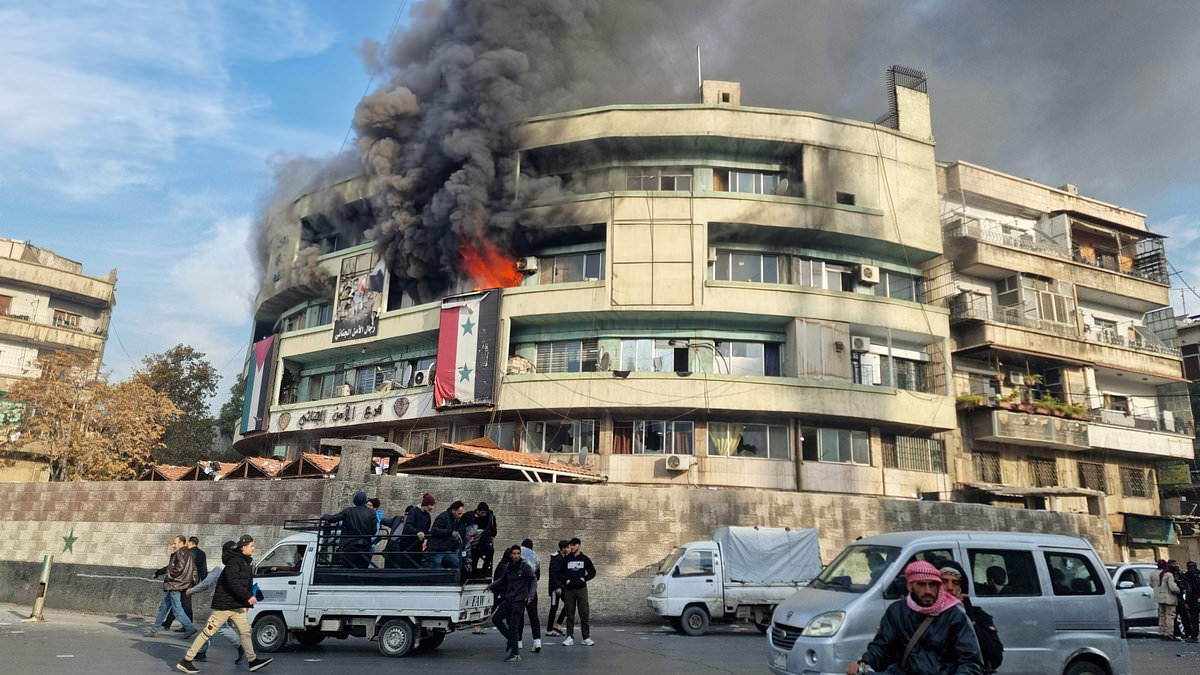Syria’s Kurds fear they may face a fresh massacre as Islamist-led rebels have already begun battling them mere hours after Bashar al-Assad’s regime collapsed.
Following Assad’s fall, the Syrian National Army, an umbrella coalition of Turkish-backed militias led by the Islamist Hayat Tahrir al-Sham (HTS) that fought to overthrow the dictator, entered the northern city of Manbij, wrestling control from Kurdish forces there.
A Turkish source told Reuters this afternoon: ‘The fight… is very close to victory. Both air and land interventions are ongoing to take Manbij.’
The Syrian National Army (SNA) later claimed that it had taken over several villages nearby including Jamous, al-Far, al-Dandaliya, Jubb al-Arous, and Awn al-Dadat.
But the Syrian Democratic Forces (SDF), a US-backed coalition of Kurdish, Arabic and Assyrian group, exclusively told that without Western intervention, they may face further encroachment from the SNA, leading to a potential massacre twenty years after Assad’s forces slaughtered dozens of Kurds in the northeastern city of Qamishli.
Ferhad Sami, a spokesperson for the SDF told : ‘We have to defend ourselves, we have no other options. We have to protect our people from violence. [The] SNA is a criminal faction that has already committed a lot of crimes. They have displaced over 300,000 Kurds and built settlements in their place.’
‘The SDF is asking for the UK and US to intervene to maintain security and help us be part of the next stage of Syrian dialogue. We depend on international help. Without it, we may face another massacre.’
The Qamishli massacre in 2004 began as tensions between Kurds and Arabs flared up, culminating in a group of Kurds tearing down a statue of Bashar al-Assad’s father, Hafez, who ruled Syria with an iron fist between 1971 and 2000.
In response to this, military personnel were deployed alongside tanks and helicopters.
They killed 30 Kurds and left more than 160 injured. On top of this, they arrested an estimated 2,000 people.
Sami added that the West ought to intervene in northern Syria to prevent a potential outbreak of ISIS prisoners held in the region.
‘These attacks will pose a threat to prisons holding ISIS detainees. We may lose control of these prisons, with our forces pre-occupied with the front’, Sami warned.
has contacted the UK’s foreign office and the US State Department for comment.
Sami’s warning comes after UN war crimes investigators Bashar al-Assad’s fall from power as a ‘historic new beginning’ for Syrians, urging those taking charge to ensure the ‘atrocities’ committed under his regime are not repeated.
‘Today marks a historic new beginning for the Syrian people who have suffered unspeakable violence and atrocities over the past 14 years,’ the UN Commission of Inquiry on Syria said in a statement, pointing in particular to those held for years in arbitrary detention.
‘It is incumbent on those now in charge to ensure that such atrocities are never again repeated within the walls of Sednaya (prison) or any other detention centre in Syria.’
Crowds have already been gathering in Damascus to celebrate the fall of Bashar Assad’s government with chants, prayers and the occasional gunfire after opposition fighters entered the capital following a stunning advance.
Rami Abdurrahman of the Syrian Observatory for Human Rights, a Syrian opposition war monitor, said Assad took a flight from Damascus and left early Sunday. There was no immediate official statement from the Syrian government and Assad’s whereabouts remain unknown.
It was the first time opposition forces had reached Damascus since 2018 when Syrian troops recaptured areas on the outskirts of the capital following a yearslong siege.
The night before, opposition forces had taken the central city of Homs, Syria’s third largest, as government forces abandoned it.
The rapidly developing events have shaken the region. Lebanon said it was closing all its land border crossings with Syria except for one that links Beirut with Damascus. Jordan closed a border crossing with Syria, too.
